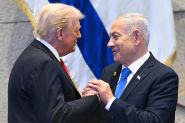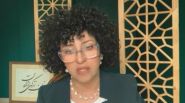- Home
- Middle East
- Assassination Casts Dark Cloud over Iraqi Elections

©This is Beirut
Iraq continues to suffer from lawlessness, where the politics of the gun – and not the ballot box – play too great a role
In the early hours of October 15, an IED tore through a Chevy Tahoe in Baghdad’s northern outskirts, killing Safaa al-Mashhadani, a candidate in Iraq’s upcoming parliamentary elections. Three days later, gunmen opened fire on the office of another candidate, Muthanna al-Azzawi, 25 kilometers south of the Iraqi capital, wounding two bodyguards. These attacks, both targeting Sunni members of the Baghdad Provincial Council, might signal the start of a wave of political violence aimed at intimidating Sunni parties in Iraq. They show that Iraq continues to suffer from lawlessness, where the politics of the gun—and not the ballot box—play too great a role. As the November 11 parliamentary elections draw nearer, the Iraqi government must prevent more such attacks and rein in militias, including the all-too powerful ones affiliated with Iran.
Mashhadani’s Sovereignty Alliance condemned the October 15 attack as “treachery pursued by the forces of uncontrolled weapons and terrorism” but refrained from directly attributing it to Iraq’s paramilitary groups. Meanwhile, Azzawi’s Azm Alliance said that armed groups were attempting to sow fear by targeting candidates. The method of Mashhadani’s assassination—a magnetized “sticky” bomb placed beneath his vehicle—has long been a tactic of Iraqi militias. Iran reportedly supplied such devices to their proxies since at least 2010. The fact that Mashhadani was a rising Sunni politician suggests that this attack might have sectarian motives. Analysts note that the killing comes amid a heated electoral contest in which Sunni parties have been seeking to expand their influence against pro-Tehran Shia factions.
The United Nations Assistance Mission for Iraq (UNAMI) called on Baghdad to conduct a swift investigation into Mashhadani’s killing to hold the perpetrators accountable. So far, Iraqi Prime Minister Shia al-Sudani has ordered a probe into the assassination, while authorities announced the arrest of five suspects. Past precedent offers little optimism for justice. For years, Baghdad has sought to play a good-cop-bad-cop routine, enabling militias to terrorize Iraq and the region while also claiming to investigate their crimes.
In 2023, an Iraqi court sentenced to death the hitman who confessed to assassinating researcher Hisham al-Hashemi, only for the accused to disappear from Iraq and his sentence to be overturned. The killing of a Hashemi—a critic of pro-Iran militias—was widely attributed to Kataib Hezbollah, one of Iran’s key proxies in Iraq. The group was behind the March 2023 kidnapping of Princeton University doctoral student Elizabeth Tsurkov, another crime that demonstrated Baghdad’s foot-dragging. Although Sudani’s government claimed to have been investigating the kidnapping since early 2023, Tsurkov was only freed last month after pressure from the Trump administration. The Iraqi government has also been accused by the Kurdistan Regional Government (KRG) of looking the other way regarding a recent surge of UAV attacks against its energy infrastructure. The KRG says the Popular Mobilization Forces (PMF), the Iraqi state’s umbrella organization for Iranian-backed militias, are behind the attacks in northern Iraq. Baghdad denies the accusation against its paramilitary arm.
The Iranian-backed militias are difficult for Iraq to rein in precisely because they are part of the state’s PMF. As such, they serve as a kind of quasi national guard, with pretensions to copy the IRGC’s outsized influence in Iran. Iraq tries to integrate these groups even more into the fabric of the security forces with government succor. The US has sanctioned most of the well-known militias within the PMF, such as Kataib Hezbollah. However, it appears that no matter how many sanctions are slapped against these militias, they continue to maintain their influence. In fact, Baghdad condemned Washington’s October 9 sanctions against the Iranian-backed paramilitary groups, which in past years have conducted dozens of attacks against US armed forces.
This leaves Iraq at a difficult crossroads. The elections could deal a blow to Iranian-backed sectarian groups such as the Badr Organization and their various allies within the Shiite political parties in Iraq. On the other hand, if assassinations continue and political violence grows, it will be clear that the government is not serious about reining in armed militias.
Read more




Comments